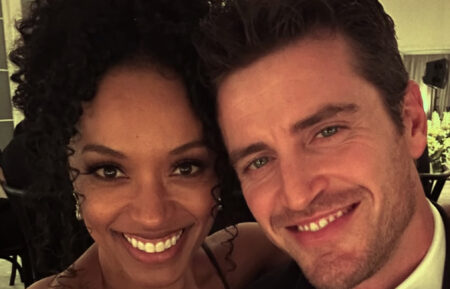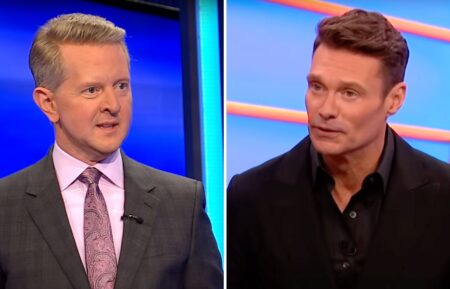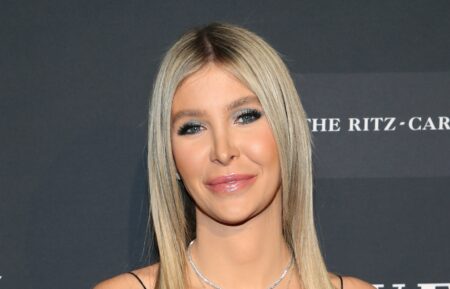Ben Barnes on Whether ‘Shadow and Bone’s General Kirigan Is Redeemable
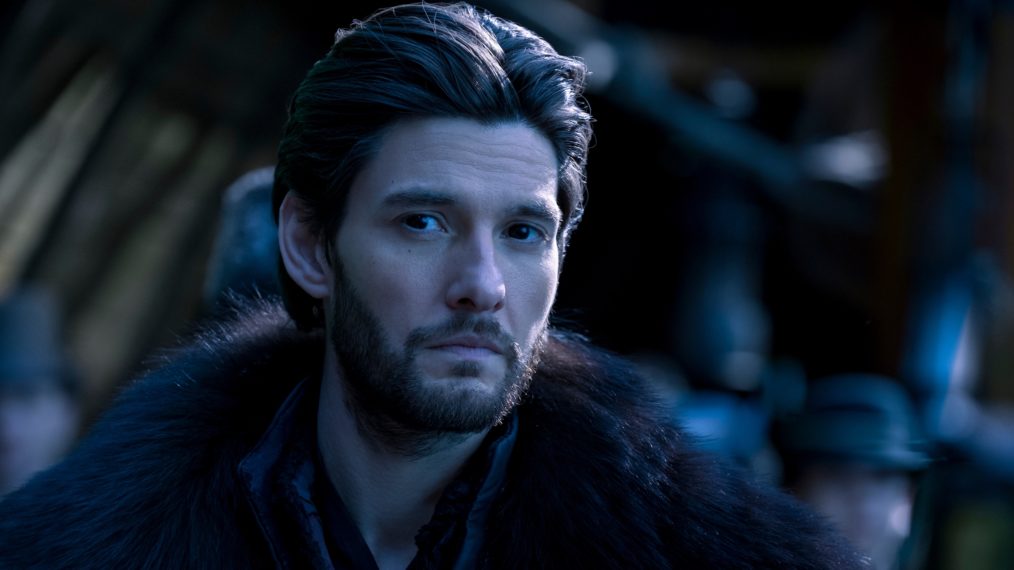
Q&A
[WARNING: The following contains MAJOR spoilers for Shadow and Bone Season 1.]
Now that you’ve completely binged Season 1 of Shadow and Bone, Netflix’s epic fantasy adaptation based on bestselling YA author Leigh Bardugo’s many Grishaverse books, we need to talk about General Alexander Kirigan (Ben Barnes). Or, ahem — the Darkling.
Throughout the season, the powerful Kirigan manipulated Alina (Jessie Mei Li) and eventually outright used her, controlling her sun summoner abilities through a shared Amplifier. And that’s not all the General was up to. He also expanded the Shadow Fold, the vast expanse of darkness filled with terrifying monsters, instead of, you know, getting rid of it as he had (sort of) promised. And when Alina eventually ditched him and his Grisha followers within the dark space, Kirigan somehow managed to survive against all the odds. Last we see him, he’s crawling out of the Fold and yep — turning the Fold’s shadows into an army of walking monsters.
Below, Barnes sat down to chat with TV Insider about Kirigan’s motivations, just what the villain was thinking in the season’s final, terrifying moments and any looming threats to come.
What were your conversations like, in regards to calling this guy “General Kirigan” and shying away from using his only name in the books, “the Darkling”?
Ben Barnes: I know that Leigh offered the name of Kirigan from a later story, and he’s said to be one who steals nobleman’s names, and this is a nobleman’s name. At first, I was actually a little bit hesitant. I liked the mystery of being called “The Darkling,” but [I said] ‘He sounds like a villain, so we shouldn’t call him that. Can we just call him the General?’ And then I realized actually, the mystery is my job. What I should take the help with is the duality and [portraying] his humanity. So, give him a name, make him a real person with a first and a last name. The mystery is playable in [me] giving the opposite of every moment. If it’s about to be revealed that this man is not who we think he is, let’s play a very sweet moment before that. If he says something kind of endearing, let’s put a threatening moment in there as well. The unpredictability keeps him mysterious, I think. But the humanity and the warmth and the fragility and the confusion and the loneliness and all of those things that I think are all of the onion, as it were, those are the things I’d rather take the help with, so I think that was the thought behind giving him that name. And also you have reveals, later on, which recognize the use of the word “Darkling” from the people who’ve spit it at him.
Is the mystery your favorite part of playing a villain like General Kirigan?
Actually, I’d have to say I like stories about hope, and that’s one of the things I love most about this — all of the characters are struggling with their demons and their pasts, or their caste systems, or their newfound powers, or whatever it might be. They’re all struggling to understand who they are and where they belong. I think that while my character has a bit of a head start on all of that — he’s the one who thinks he knows who he is and where he belongs, and then, this magical new woman comes into his life and starts to move things around. There’s a shift [in him], and that question is potentially askable again.
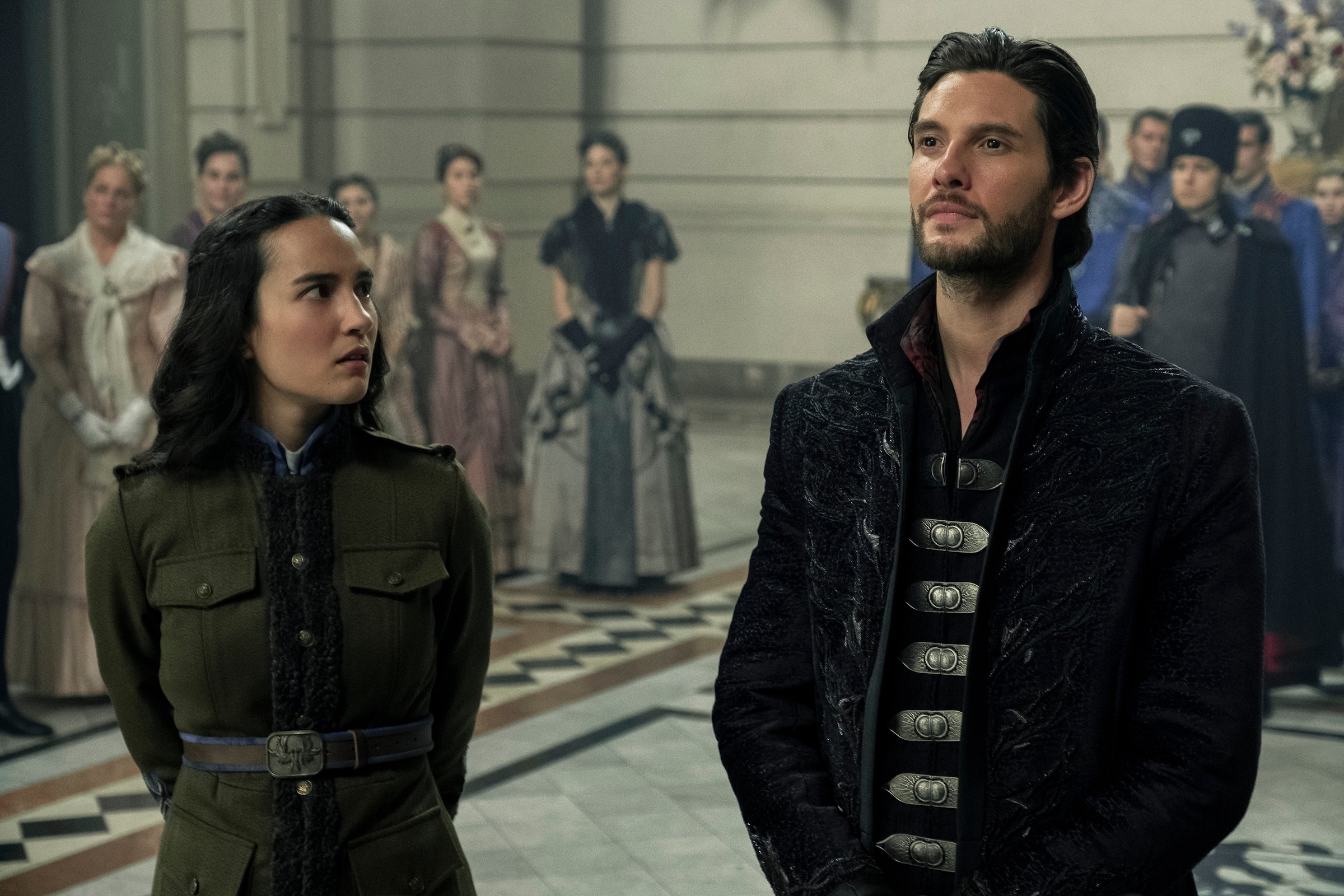
DAVID APPLEBY/NETFLIX
But my favorite part [of playing a villain] is to find the warmth and the sweetness. I think it is very fun to sort of whisper the word “quiet” under your breath and everyone goes silent, even if you had to rehearse it five times. And it’s definitely very fun to play those very muscular scenes with Mal [Archie Renaux], where you feel like you’re explaining something to someone in that vaguely patronizing but alpha way — that’s obviously very fun to do. But the real fun, challenge, is to find the flipside of the coin.
In Episode 7, “The Unsea,” we get to see Kirigan’s past, which is not something I was familiar with from reading the books…
It’s not in the books! There’s a [Shadow and Bone short story prequel] called The Demon in the Wood, and I think that was the original plan, to show him as a child and flashback to that story. In this case, in Episode 7, there’s something a bit more explanatory in terms of the Fold. It’s such a big character in Season 1 of the story, so to have the origin story of the Fold, as it were, is, I think an important element. It also shows [Kirigan] as a leader with more hope. And in the character of Luda [Kirigan’s late beau], you see the Benjamin Button of him. How many loves must he have lost along the way? To be able to say to her, ‘I’m sure a hundred years feels like a long time to you.’ How many more must there have been that he tried with, and lost? And how isolating and heartbreaking must that be? And then, winning wars for various kings and being punished for it. He’s been abused in the way that he’s now abused Alina, which is sadly all too familiar a story. I think that’s an interesting thing to note, and it’s real, and it relates to something that’s in our world even though it’s completely wild and fantastical. It’s interesting to get into that mindset of the antihero for that one section of the show.
Would you say that he created the Shadow Fold out of grief over losing this love, or was it an angrier emotion?
It’s so closely linked. There was a line in the “make me your villain” scene. [Alina] said something about the Fold, and I say, “the Fold was a mistake.” And she says, “it was no mistake.” But she doesn’t know that. And I think that, yes, he intended to use the dark magic of this world to try and create an army to insist on peace, which is essentially still his agenda now, all these years later. So yes, that was his mistake. That was his moral error in terms of the method, but his intent has a purity to it, and I think his intensity to do that is fueled by love.
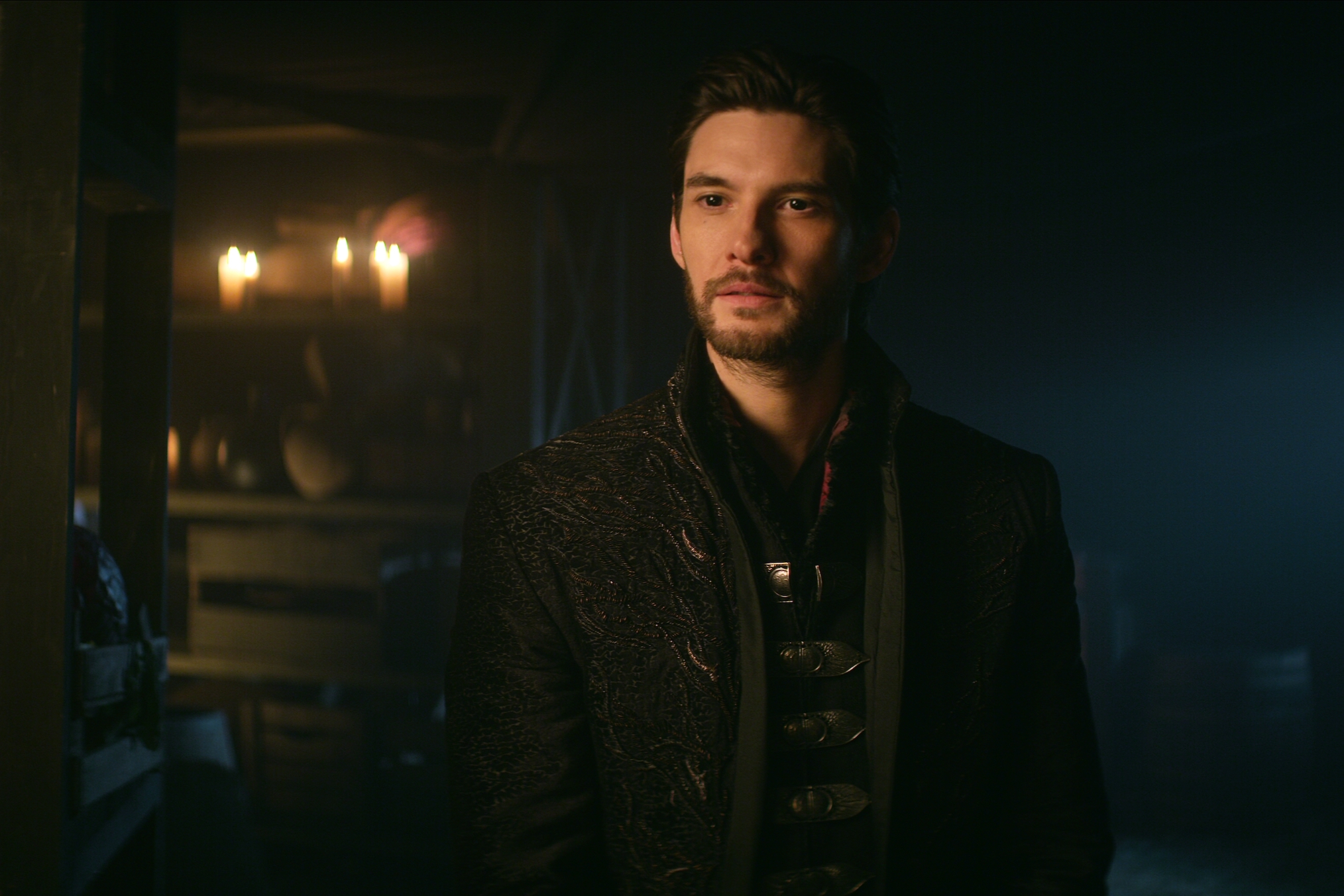
DAVID APPLEBY/NETFLIX
In the scene at the very end of the season when he’s crawling out of the Fold, what do you imagine is going through his mind?
I think he believes that if he was caught in the Fold by himself that he would be done for. I think he at one point he does say, ‘I’m just a beacon for the volcra.’ And they are of him. He thinks that they would just digest him. The fact that he realizes that actually, the opposite is true — he’s their master — I think that’s probably quite shocking. I think there’s probably an element of glee and relief. He’s got an extraordinary amount of vendettas that are on his mind, in terms of everyone who has a character name in the story who has tried to kill him or would like to at some point, and those who haven’t betrayed him are about to. So, in terms of the story, I think instantly he would again feel quite lonely and feel very powerful. But now, we see a shift from all those years ago. Hundreds of years ago, he was determined to bring peace and protect the Grisha, and now, honestly, he’s had his final go at that. Using the sun summoner and harnessing those powers in order to expand the Fold — now, he finds himself disenfranchised and without a people to protect. It’s just him. I’m really interested to see what that does to his humanity.
Do you think he’s still potentially redeemable at this point by the end of the season?
I mean, we have to believe he’s redeemable or he becomes not interesting to watch. Redeemable is different from actions being condonable, though. And I think the use of power he shows and manipulation is not forgivable, so he certainly shouldn’t be rewarded for it, but if he can find a way to explain and apologize essentially, and understand where he went wrong, then, we have to believe everyone’s redeemable, don’t we?
Shadow and Bone Season 1, Now Streaming, Netflix





